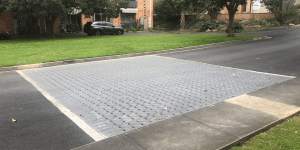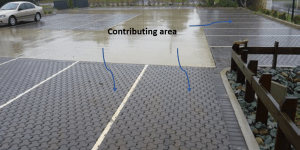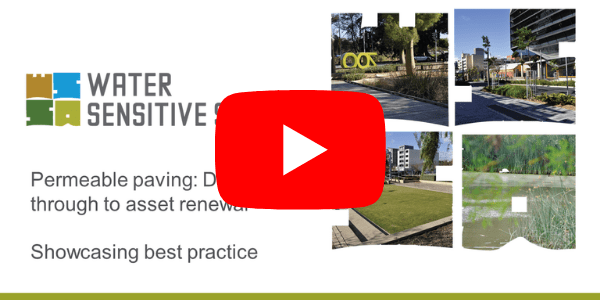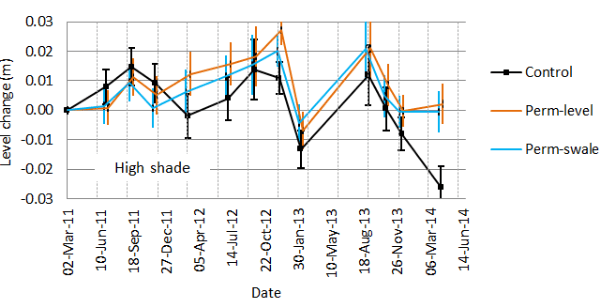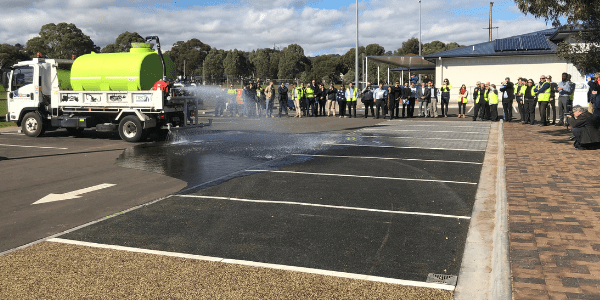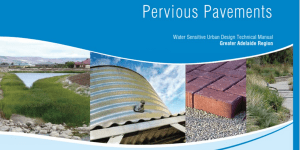Pervious pavement systems are pavement systems that allow stormwater to percolate through to a sub-surface course, from where it either infiltrates to the soil or is filtered back to the drainage system to subsurface soils or storages to reduce stormwater runoff. Underlying pavement layers can also include perforated pipes that allow the release of stormwater runoff into the receiving drainage system. Single-sized gravel can also be used as an effective method of reducing stormwater runoff in low-traffic footpath and driveway areas.

Laura Avenue, St Marys porous asphalt surface, City of Mitcham
Permeable pavement systems provide two main advantages over regular impervious pavements: Improved water quality through filtering, interception and providing biological treatment; and reduced stormwater flow through infiltration and storage. Permeable pavement systems commonly include interlocking block paving, porous concrete or plastic grids that provide structural stability to gravel or grassed paths, driveways and car parks.
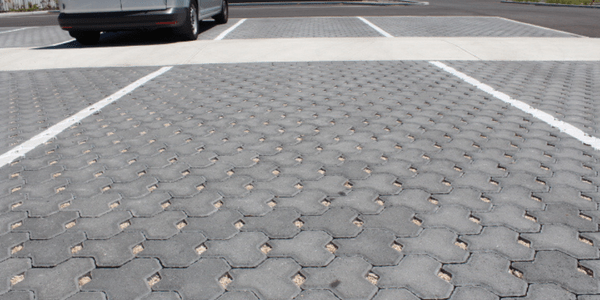 Cowandilla Community Centre permeable paved carpark, City of West Torrens
Cowandilla Community Centre permeable paved carpark, City of West Torrens

Standard drawings






